B.Tech Computer Science and Medical Engineering

Course Overview
The B.Tech - Computer Science and Medical Engineering specialization is a 4-year undergraduate course blending computer science with healthcare, equipping students to create innovative medical technologies. It covers bioinformatics, healthcare data analytics, and medical imaging systems, addressing the growing role of technology in patient care. The curriculum provides hands-on experience with medical devices and software used in diagnostics and treatment. Students also engage in collaborative projects with hospitals and research institutions to gain real-world exposure. Graduates are prepared to contribute to healthcare IT, medical research, and technology-driven healthcare solutions.
Course Objectives
- To integrate technology with healthcare for innovative solutions.
- To develop expertise in medical imaging and bioinformatics.
- To train students in analyzing healthcare data and improving diagnostics.
- To foster collaboration with healthcare institutions and industries.
Learning Outcomes
- Ability to develop and deploy medical technologies and software.
- Proficiency in healthcare data analytics and bioinformatics.
- Skills to innovate and optimize healthcare systems.
- Preparedness for careers in healthcare IT and research.
Curriculum
Semester 1
Practical
- Physics Lab
- Chemistry Lab
- Basic Electrical and Electronics Lab
- Programming Lab (Python/C)
Theory
- Communication Skills I
- Mathematics I (Calculus and Linear Algebra)
- Physics for Medical Engineering
- Bio Chemistry
- Fundamentals of Medical Engineering
- Introduction to Programming (C/C++/Python)
- Engineering Graphics
Semester 2
Practical
- Human Anatomy and Physiology Lab
- Workshop Practices
- Data Structures Lab
- Object-Oriented Programming Lab
Theory
- Communication Skills II
- Mathematics II (Probability, Statistics, and Complex Analysis)
- Data Structures and Algorithms
- Human Anatomy and Physiology
- Object-Oriented Programming
- Environmental Studies
Semester 3
Practical
- Signals and Systems Lab
- Machine Learning
- Microprocessors and Microcontrollers Lab
Theory
- Mathematics III (Differential Equations and Transform Techniques)
- Signals and Systems
- Machine Learning Fundamentals
- Biomaterials and Biomechanics
- Microprocessors and Microcontrollers
- Digital Logic and Computer Organization
Semester 4
Practical
- Database Management Lab
- Biomedical Instrumentation Lab
- Operating Systems Lab
Theory
- Mathematics III (Graph Theory and Numerical Methods)
- Database Management Systems
- Medical Imaging Techniques
- Biomedical Instrumentation
- Operating Systems
- Economics for Engineers
Semester 5
Practical
- Machine Learning Lab
- Embedded Systems Lab
- Medical Signal Processing Lab
Theory
- Operation Research
- Machine Learning and Artificial Intelligence
- Embedded Systems
- Medical Signal Processing
- Computational Biology
- Professional Elective I (e.g., Internet of Things, Cloud Computing)
Semester 6
Practical
- Computer Networks Lab
- Bioinformatics Lab
- Biomedical Imaging Lab
Theory
- Computer Networks
- Bioinformatics
- Advanced Biomedical Imaging
- Neural Networks and Deep Learning
- Professional Elective II (e.g., Robotics in Healthcare)
Semester 7
Practical
- Project Phase I
- Cloud Computing Lab
- IoT Lab
Theory
- Internet of Things (IoT) in Healthcare
- Cybersecurity in Medical Devices
- Cloud Computing and Big Data
- Professional Elective III (e.g., Advanced Signal Processing for Healthcare)
- Open Elective (e.g., Healthcare Policy and Ethics)
Semester 8
Project
- Project Phase II
Student Life
News And Events

100% Guaranteed Placement Assistance
Your career is our commitment!
